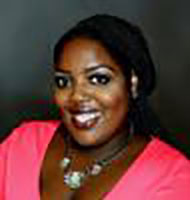In 2018, the National Urban League launched its get-out-the-vote campaign, “Enough Is Enough. VOTE!” Although, as a nation, we have witnessed some advancement, the Black community still faces stubborn injustices and obstacles: barriers to the ballot box; double-digit unemployment in comparison to white peers; the senseless killings of unarmed Black people; unequitable education for Black children, and much more. The GOTV campaign called for the Urban League movement and its partners to constructively harness the public’s anger and frustration and take it to the polls to demand change by electing people who will speak for the Black community. The campaign launched digitally in September 2018 but started on the ground with grassroots conversations in the spring of 2018.
The major strategy was to go where the people were. The campaign hit the ground running at the Essence Festival in New Orleans, Louisiana. A month later, the campaign headed to Columbus, Ohio. The National Urban League met with local community members and voters during its annual conference as part of its “Community Day” programming. In October, four additional activations took place in Cleveland, Ohio; Detroit, Michigan; Philadelphia, Pennsylvania; and Atlanta, Georgia. These activations were multi-generational and accomplished in coalition with other communities of color who understood that the lasting effects from the 2018 midterm elections would impact them for decades as well. Campaign activities included a “Meet the Candidate Forum,” voter verification drives at an annual health fair and local restaurants, a voter suppression hearing, neighborhood canvassing, and tailgating at Morehouse College’s homecoming game. When engaging voters, conversations started early, occurred often, and relationships were cultivated and maintained via email and text messaging. Regular communication kept the election top-of-mind and our consistent messaging stressed how this election would impact the Black community for decades.
The National Urban League could not have run a successful civic engagement campaign without the Movement. Activations and training sessions of local affiliates, young professionals and guild chapters, and partners were key in mobilizing the campaign. Understanding the importance of how to conduct voter engagement within a nonprofit organization ensured compliance for each 501(c)3 organization. In addition to trainings, the National Urban League partnered with Nonprofit VOTE to co-brand a voter toolkit that educated campaign participants on how to be involved in the political process without affecting funding. This alliance yielded a premiere partnership for National Voter Registration Day where over half of the affiliate movement and auxiliary groups conducted voter registration activities throughout the country. Partners, such as When We All Vote and Rock The Vote amplified the messaging on their social media accounts. Ashley Stewart, a clothing company and lifestyle brand, was one of the campaign’s key corporate partners. Ashley Stewart created a digital campaign that was distributed to their consumers via email and social media as well as a co-branded commercial, which was also distributed by the National Urban League. Rideshare company, Lyft, provided special ride codes in selected cities to encourage voters who lacked transportation to get to the polls and cast their vote.
With the help of the Urban League Movement and its partners, 16 million people were reached, nearly 800,000 impressions were made on social media platforms, and the campaign generated almost 49 million earned media impressions. Nearly 100,000 touches occurred through email, text messaging, and the Urban League’s “Civic Action Center.”
While the campaign was successful, there remain opportunities to strengthen its future impact and reach. One critical strategy will be to engage with the affiliate movement and partners much earlier. The National Urban League will begin focusing on educating, strategizing, and road-mapping for 2020 this year, knowing that the success of the 2020 campaign hinges on engagement from the entire Urban League Movement and its partners.
The Voting Rights Act was signed into law in 1965. Today—54 years later—access to the ballot box is under threat yet again—and actively under attack. While some of the tactics may have changed, the intent remains the same: elections officials enact restrictive voter identification laws; approve changes to polling locations without proper notice; and limit or eliminate access to activities such as early voting to create high social and legal barriers to the vote.
Voting is a civic duty and a form of activism. The franchise empowers individuals to elect representatives who will support their interests and protect their rights. If the history of Black people in America has proven anything, it has proven that protest, boycotts, and marching are necessary, but voting must be a key part of a civil rights activism strategy. Voting allows people to be proactive in setting the agenda with elected officials instead of being reactive when rights are violated or rolled back.
There is too much at stake now—and for generations to come. We say: enough of our civil rights being stripped away by the rolling back of immigration, voting rights, and criminal justice laws and policies. Enough of our public schools being underfunded and our children being over-penalized. Enough of the attacks on access to affordable healthcare and women’s reproductive rights. And enough of the unjustified killings of unarmed people of color by the police. Enough is enough—vote!



